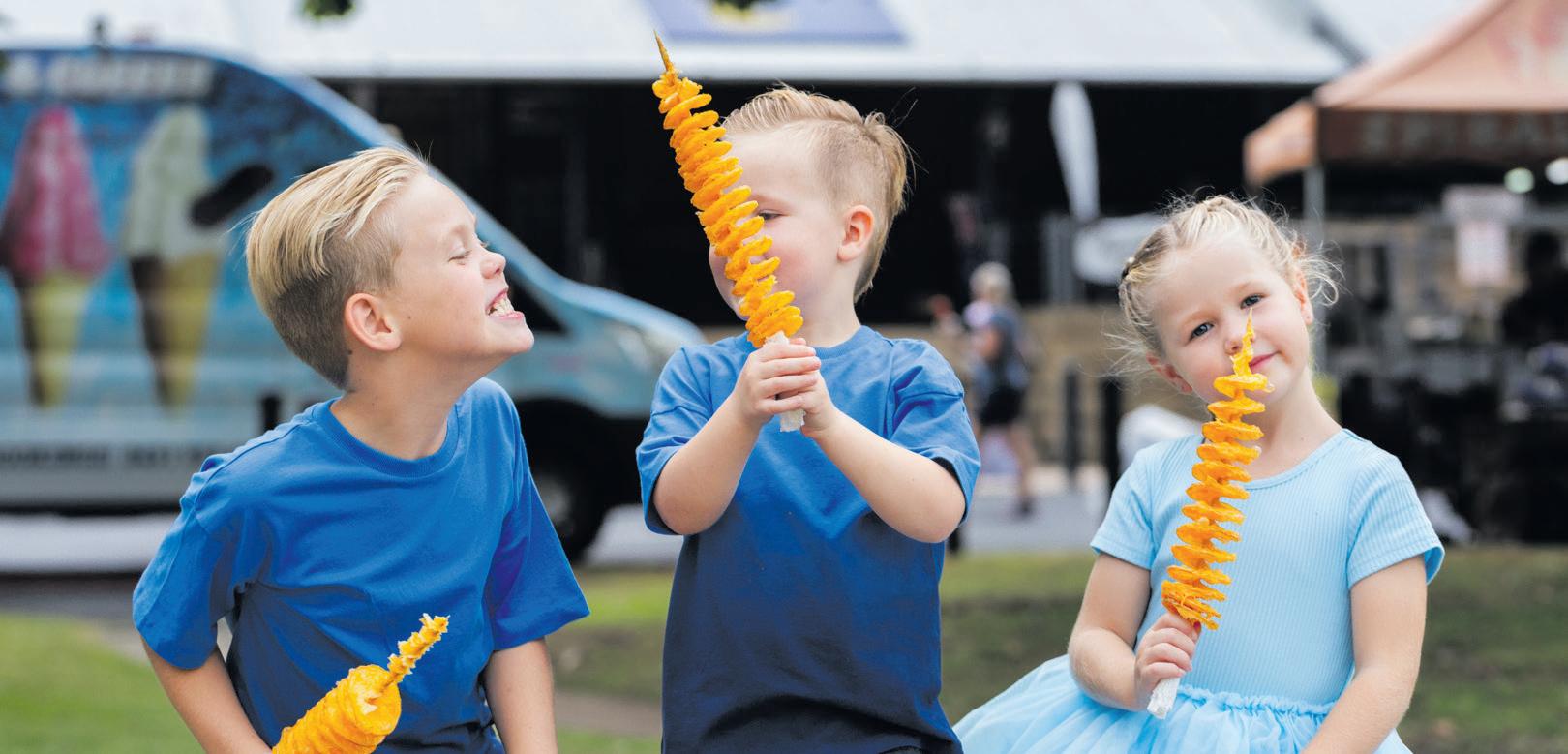
2 minute read
Burial of
The NSW National Parks and Wildlife Service (NPWS) has announced the burial of a 10-metre juvenile humpback whale carcass that washed ashore on Mooball Beach near Pottsville last Friday. Weighing approximately 15 tonnes, the whale was in an advanced state of decomposition. Following an assessment, the NPWS, in consultation with Tweed Shire Council, the NSW Environment Protection Agency (EPA), and Tweed Byron Local Aboriginal by severe weather conditions.
But researchers were interested in fnding if climate change and ingestion of marine debris may play a role in some events.
They noted the numbers of carcasses visible may vary from small numbers to hundreds or even thousands of birds, and may be infuenced by prevailing sea and weather conditions.
Mutton birds were most commonly affected, but other species of shearwater could also be involved.
They said exclusion of other causes of death, including viral infections, is warranted, especially when concern around circulating infectious diseases is heightened.
Dead bird normally begin washing up on beaches from the end of September into November.
People should keep pets away from the rotting carcasses because of the risks of ingesting rotten fesh or contracting infectious diseases.
Wildlife Health Australia administers
Thousands of dead or sick short-tailed shearwaters (mutton birds) are washing up on beaches along Australia’s east coast as they return from their annual migration to the Northern Hemisphere. Authorities urge caution handling sick or dead birds. Tests for bird fu have been ordered, but results have not been posted.
Australia’s general wildlife health surveillance system, in partnership with government and nongovernment agencies.
Wildlife health data is collected into a national database, the electronic Wildlife Health Information System (eWHIS).
Information is reported by a variety of sources including government agencies, zoo based wildlife hospitals, sentinel veterinary clinics, universities, wildlife rehabilitators, and a range of other organisations and individuals. It also collects targeted surveillance data.
deceased whale at Mooball Beach
Land Council Rangers, determined that burial was the safest and most environmentally sound disposal method.
The carcass was buried above the high tide line and water table to avoid any negative impact on the surrounding environment, in line with recent research indicating minimal environmental impact for such burials. The selected site, located behind the foredune, ensures the burial will not alter existing shark behaviour’s.
Statement from Tweed Shire Council’s Manager of Sustainability and Environment, Jane

Lofthouse Council’s Manager of Sustainability and Environment, Jane Lofthouse, addressed community concerns over the burial, stating that the decision was made following careful consideration of various factors, including the size and condition of the whale, health risks, visitation levels, and cultural and environmental impacts.
“The burial site was chosen to minimize its impact on mature vegetation, keep it above the high tide line, reduce erosion risks, and ensure a suffcient burial depth,” Ms. Lofthouse noted.
NPWS will continue monitoring the site.
Beachgoers may notice a lingering odour, and they are encouraged to explore other beaches along Tweed’s 37 km coastline in the interim.
Dog owners are advised to keep dogs on leads near the burial area.
For further information, NPWS can be contacted through their website at nationalparks.nsw.gov. au/about-npws/contactus.








